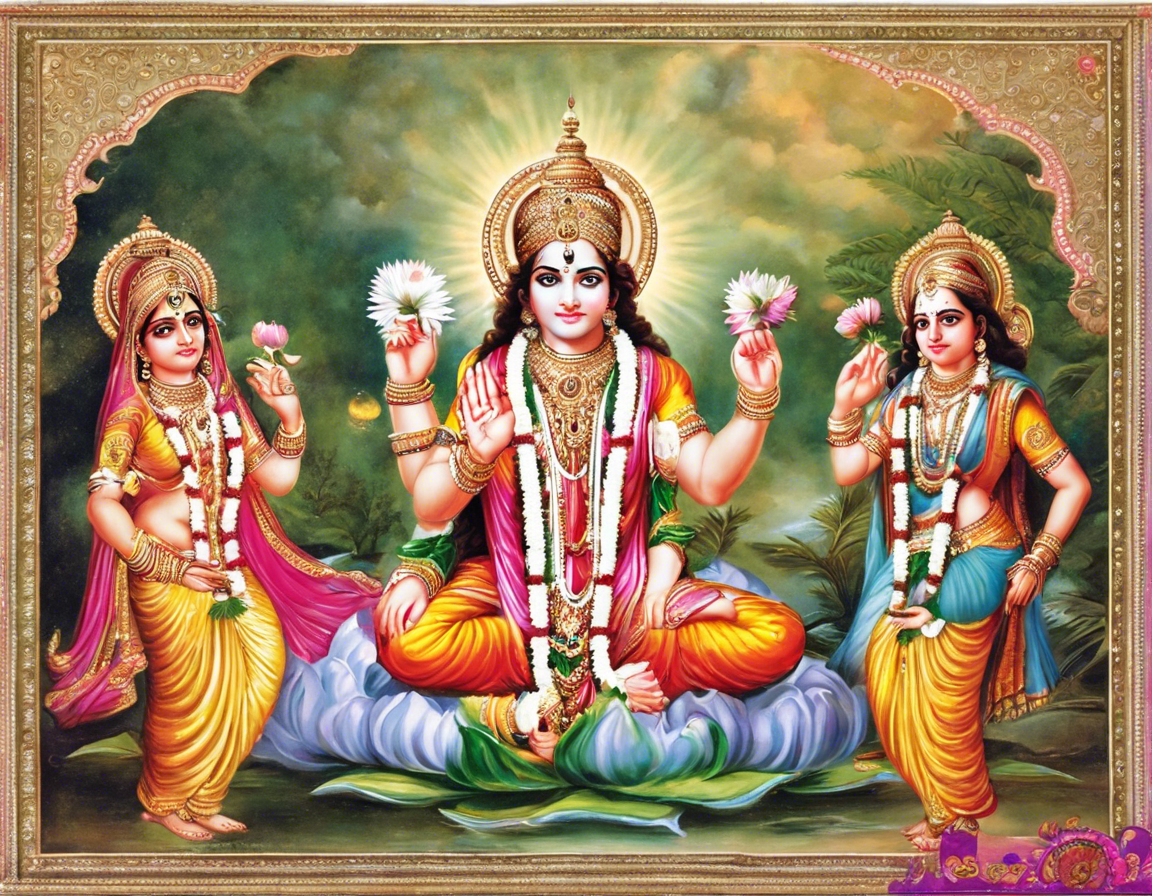Fasting has been a sacred practice in various cultures and religions worldwide for centuries. In the Hindu tradition, Ekadashi holds a significant place as a day of fasting and spiritual observance. Derived from the Sanskrit words “eka,” meaning eleven, and “dasha,” meaning ten, Ekadashi falls on the eleventh day of each lunar fortnight, twice a month according to the Hindu calendar.
The Origins of Ekadashi
Ekadashi has its roots in ancient Vedic texts and is believed to date back to the time when the universe was created. According to Hindu mythology, Ekadashi is associated with the goddess Ekadashi, an embodiment of Maha Lakshmi (the goddess of wealth, fortune, and prosperity) and a form of Vishnu (the preserver in the Hindu trinity).
The Spiritual Significance of Ekadashi
Ekadashi holds profound spiritual significance for Hindus. It is believed that observing a fast on this day helps in purifying the mind and body, detoxifying the soul, and increasing spiritual awareness. Fasting on Ekadashi is not merely abstaining from food; it is about controlling the senses, practicing self-discipline, and focusing on prayer and meditation.
Ekadashi Vrat: Rituals and Practices
Devotees who observe Ekadashi Vrat abstain from consuming grains, beans, and certain vegetables during the fast. They may choose to have a simple meal consisting of fruits, nuts, dairy products, and non-grain flours. Water, milk, and fruits are commonly consumed during the fasting period. Some devout followers choose to undertake a full day fast, while others opt for a partial fast where they consume fruits and milk.
Importance of Observing Ekadashi
Observing Ekadashi is believed to bestow a multitude of benefits on the devotee. It is said to cleanse the body of toxins, improve digestion, increase longevity, and bring good fortune. Fasting on Ekadashi is also considered a way to atone for past sins, seek forgiveness, and gain spiritual merit. Many individuals undertake Ekadashi Vrat to deepen their spiritual practice and strengthen their connection with the divine.
Ekadashi and the Lunar Cycle
Ekadashi is closely linked to the cycles of the moon. As the moon waxes and wanes, the energy levels in the body are believed to fluctuate. Fasting on Ekadashi is thought to be most beneficial during the eleventh day of the waxing and waning moon. It is believed that by aligning one’s fasting practice with the lunar cycle, an individual can harmonize their physical, mental, and spiritual energies, leading to balance and inner peace.
Ekadashi Mantras and Prayers
Chanting mantras and prayers on Ekadashi is considered auspicious and spiritually uplifting. Devotees often recite verses dedicated to Lord Vishnu, Goddess Mahalakshmi, or specific mantras associated with spiritual purification and blessings. By engaging in devotional practices such as chanting, meditation, and satsang (spiritual discourse), individuals can deepen their connection with the divine and experience a sense of inner purification and peace.
The Significance of Breaking the Fast
The fast of Ekadashi is traditionally broken on the next day, known as Dwadashi, during an auspicious period called Parana. It is believed that breaking the fast at the appropriate time can multiply the benefits of fasting and help in maintaining the delicate balance of energies in the body. Devotees often break their fast with a meal consisting of grains, vegetables, nuts, and sweets, symbolizing celebration and abundance.
The Spiritual Lessons of Ekadashi
Beyond the physical benefits of fasting, Ekadashi offers profound spiritual lessons for the devotee. It teaches the importance of self-discipline, detachment, compassion, and surrender. By renouncing the pleasures of the material world for a day, individuals can reflect on their spiritual goals, nurture their relationship with the divine, and realign their priorities towards what is truly essential in life.
FAQs about Ekadashi:
-
Is fasting on Ekadashi mandatory?
Fasting on Ekadashi is not obligatory but is considered auspicious for spiritual growth and well-being. -
Can everyone observe Ekadashi fasts?
Individuals with health conditions, pregnant women, children, and the elderly may choose to abstain from fasting or consult a healthcare provider before observing. -
What foods are allowed during Ekadashi fasting?
Fruits, nuts, dairy products, non-grain flour items, water, and milk are commonly consumed during Ekadashi fasting. -
Are there specific mantras to chant on Ekadashi?
Chanting Vishnu Sahasranama, the Hare Krishna Maha-mantra, or the Om Namo Narayana mantra are considered auspicious on Ekadashi. -
Can one engage in work or routine activities during Ekadashi fasting?
While it is ideal to spend the day in prayer, meditation, and spiritual activities, individuals can carry out essential tasks while maintaining a focus on spiritual contemplation. -
What is the significance of Ekadashi in the Hindu calendar?
Ekadashi is considered an opportune time to seek spiritual growth, cleanse the mind and body, and deepen one’s connection with the divine. -
How can one make the most of Ekadashi observances?
One can maximize the spiritual benefits of Ekadashi by focusing on prayer, meditation, satsang, self-reflection, and acts of kindness and compassion. -
Are there variations in the way Ekadashi is observed in different regions?
Yes, the specific rituals, traditions, and food practices during Ekadashi may vary across different regions and sects within Hinduism. -
Can Ekadashi fasting be observed for specific intentions or prayers?
Devotees often observe Ekadashi fasts with specific intentions such as seeking blessings for health, prosperity, harmony, spiritual progress, or the well-being of loved ones. -
What is the spiritual significance of breaking the fast on Dwadashi?
Breaking the fast on Dwadashi is considered essential to receive the full benefits of the Ekadashi observance and maintain the balance of energies in the body in accordance with the lunar cycle.
Observing Ekadashi offers a unique opportunity for individuals to pause, reflect, and realign themselves with their spiritual essence. Through the practice of fasting, prayer, and meditation, devotees can deepen their connection with the divine, purify their mind and body, and foster a sense of inner peace and well-being. Ekadashi serves as a reminder of the importance of self-discipline, spiritual growth, and surrender to a higher power, guiding individuals on a path of enlightenment and renewal.
